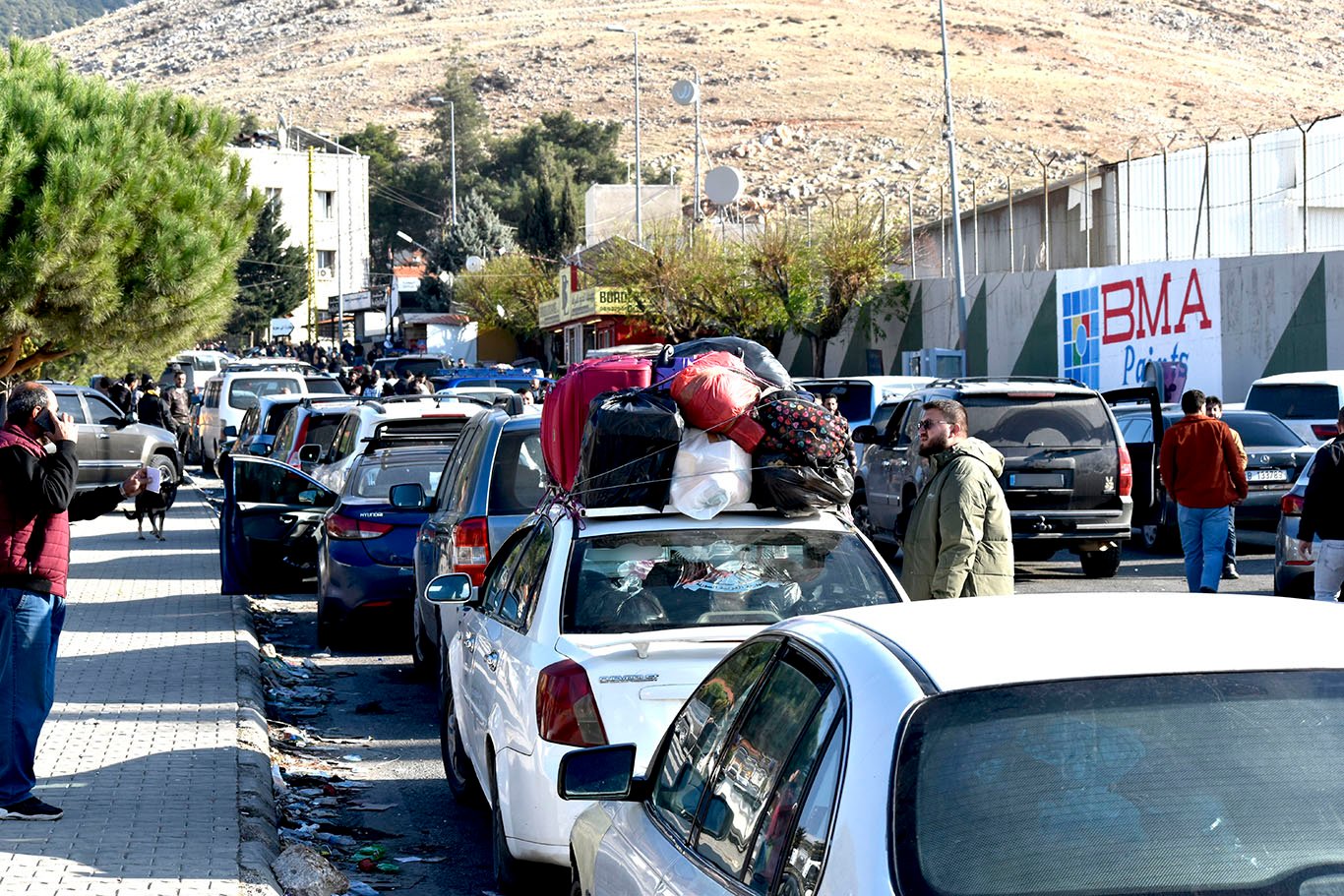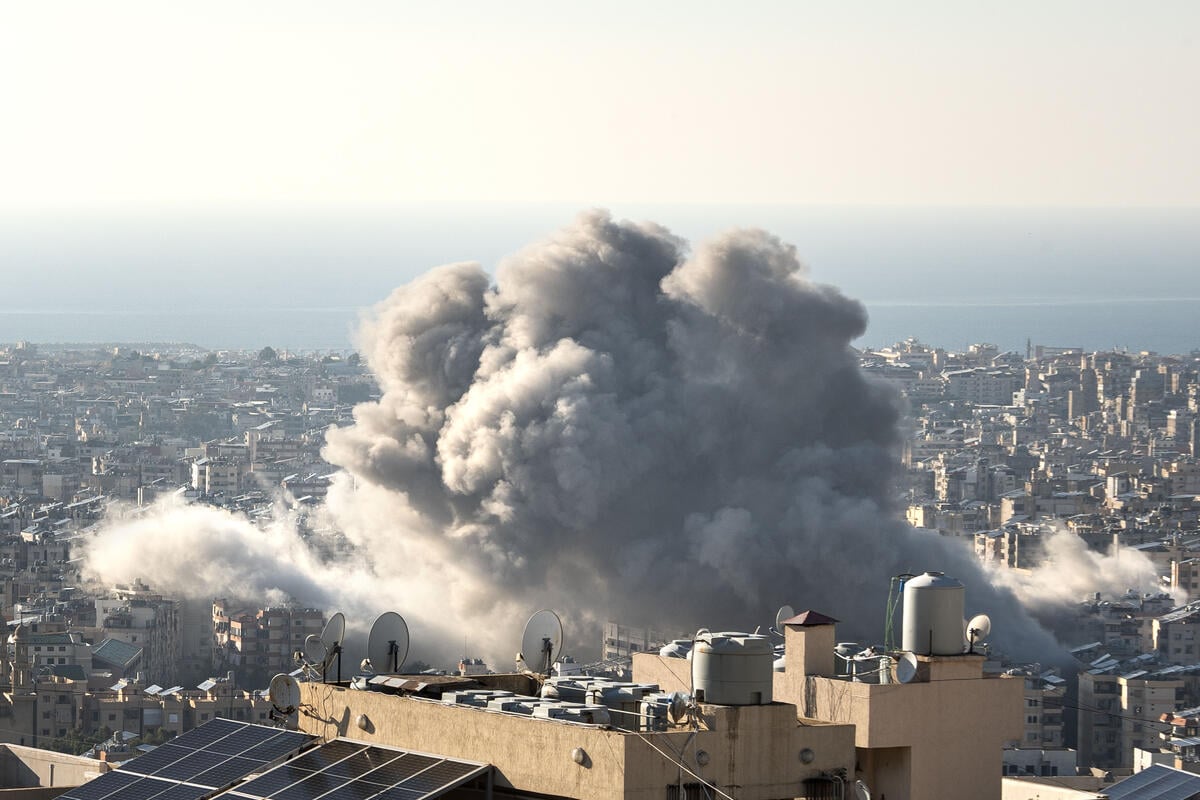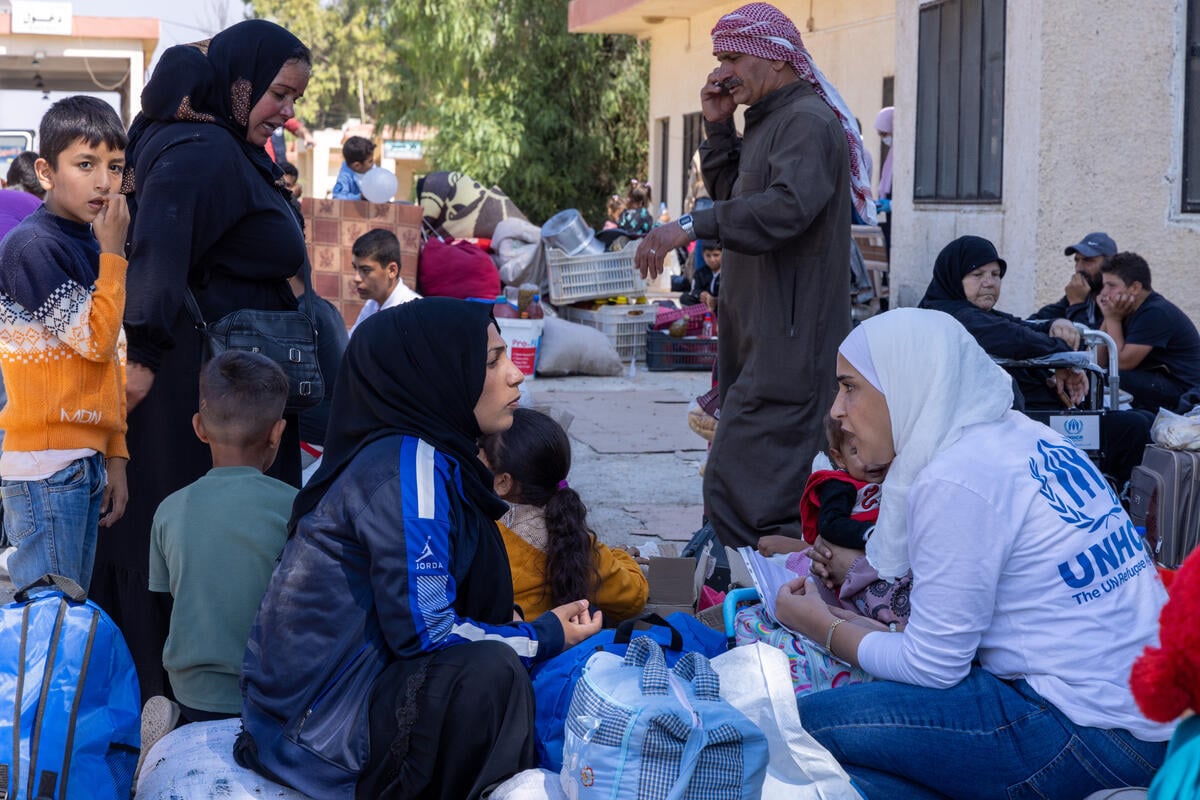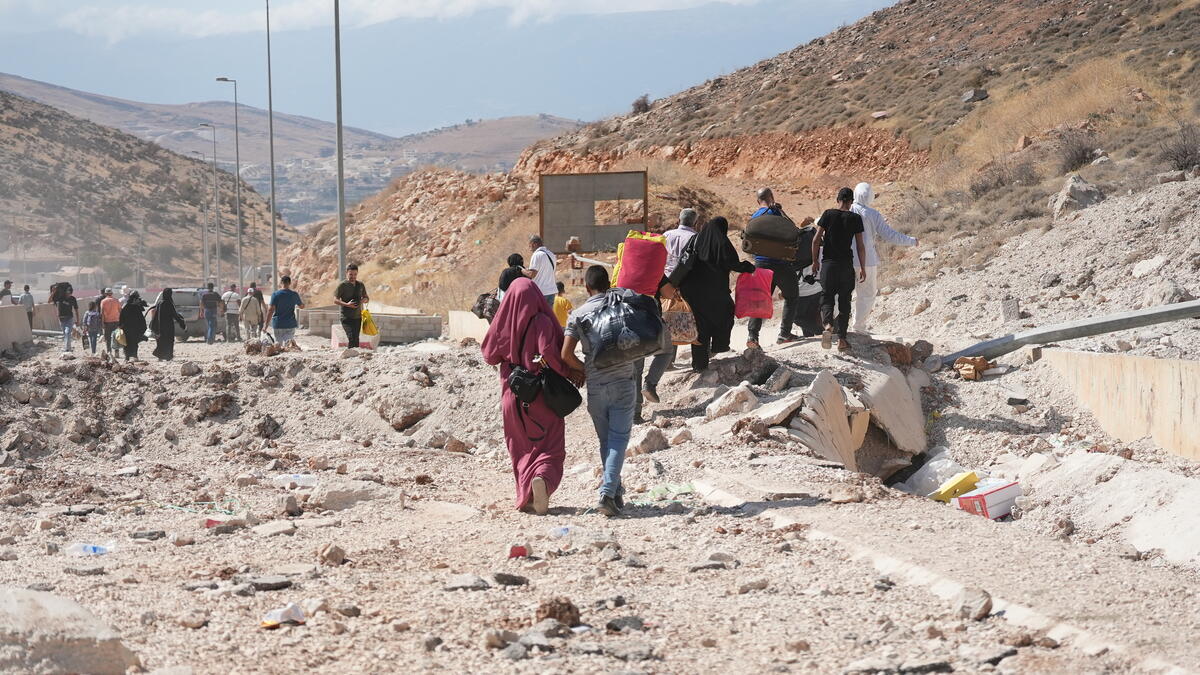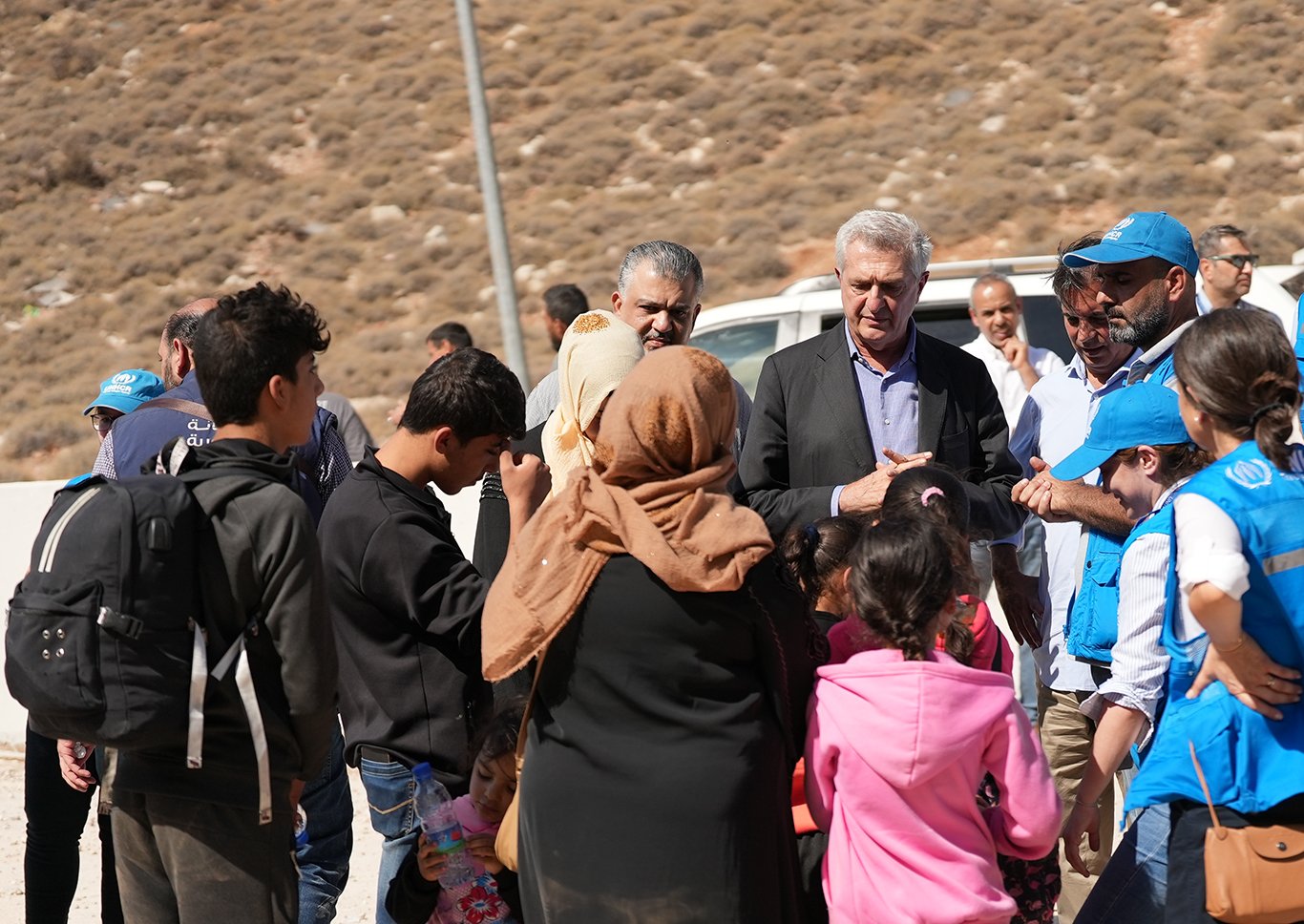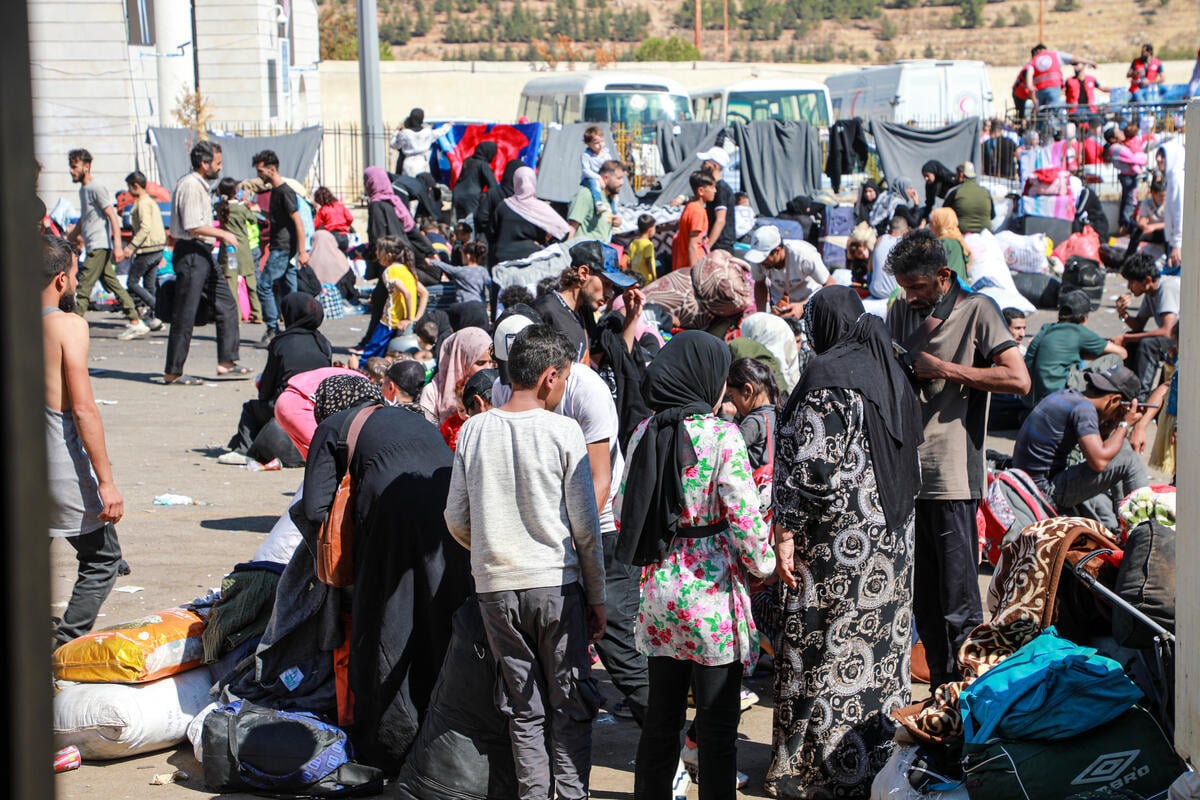UNHCR's top protection official seeks Syrian clarification on visas
UNHCR's top protection official seeks Syrian clarification on visas

DAMASCUS, Syria, September 3 (UNHCR) - Assistant High Commissioner for Protection Erika Feller has sought clarification from the Syrian authorities about plans to introduce new visa requirements for Iraqis.
The Syrians confirmed that there would be new visa requirements, but did not give full details during meetings on Sunday and Monday with Feller, who is in Syria to meet refugees and to reaffirm support for the government of Syria's efforts with regard to Iraqi refugees.
"The dialogue and partnership between UNHCR and the Syrian government has been excellent. I am looking forward to a continuation of this close cooperation," said Feller, while adding that she hoped that "the most vulnerable refugees that both UNHCR and the Syrian government are concerned about continue to have access to the safe environment offered by Syria and that there be no forcible return." UNHCR received some assurances to that effect
Foreign Ministry officials explained to Feller that the visa requirements were necessary because the country could not absorb many more Iraqis. But Feller, who oversees UNHCR's protection work for more than 30 million refugees and other people of concern worldwide, is keen to find out how exactly a change in visa requirements will affect Iraqi refugees.
She reiterated that Syria, host to more than 1.4 million Iraqi refugees, needed all the help it could get in easing the burden. "It is clear that Syria needs much more help in order to sustain this," she said, while praising the country for what it has done to date for the Iraqis.
Syria is the only country not to have imposed strict regulations on the entry of Iraqi refugees. Jordan, which hosts an estimated 500,000-750,000 Iraqis, has largely limited access to new arrivals, while other regional countries have tough visa regulations in place.
Uncertainty about a change in visa regulations earlier this year led thousands of Iraqis to approach both UNHCR and Syrian immigration offices for clarification. This weekend, press reports about the new visa requirements caused great concern amongst the Iraqi population living in Syria, with the UNHCR hotline for refugees being inundated with calls from people asking how this would affect their situation.
Feller, who leaves Syria for Lebanon on Wednesday, has also met during her visit with Iraqi refugees at the UNHCR registration centre in Damascus as well as in community centres and in their homes.
She also on Monday visited a food distribution site. UNHCR, the World Food Programme and the Syrian Arab Red Crescent on Saturday launched a food distribution aimed at meeting the needs of the most vulnerable refugees.
So far, 325 families have received two-month food packages, but UNHCR hopes to reach an average of 500 families a day so that most have their packs before the September 12 start of the Muslim fasting season of Ramadan. A total of 9,000 families are expected to receive the rations.
Since the beginning of the year, UNHCR has issued two appeals for the humanitarian crisis faced by countries hosting Iraqi refugees. The first appeal will commit US$41 million to Syria for humanitarian assistance. It is hoped that the second appeal, issued with UNICEF, will commit more than US$63 million to support the education sector in Syria.
Feller also highlighted the violence that continues in Iraq, forcing at least 2,000 people from their homes every day. She expressed concern for the problems confronting the refugee population in Syria, noting that UNHCR has registered thousands of seriously ill people and thousands of people who are victims of violence and torture in Iraq. To date, UNHCR has registered a total of 118,000 people, with an expected target of 200,000 by the end of the year.
By Astrid van Genderen Stort and Sybella Wilkes in Damascus, Syria


